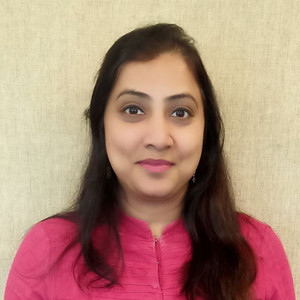The Beauty Makeover Gets Technology Transformation
Marketing beauty products first changed with a ‘try-at-home ‘approach (Remember the Avon Lady?). What really transformed it is the elimination of the need to physically try products as enabled by technology – Augmented Reality to be precise. Today, AR leverages facial visualization techniques, virtual modification and cognitive computing techniques to give users a seamless experience of trying out various products – be it hair color, lipsticks, eye makeup, anti-ageing creams or other such.
Personalized products
So, what’s the next big thing for this USD 800 billion industry? Think Artificial Intelligence (AI) and IoT. Fingernail size sensors, attachable to the human body embedded with NFC antennas, temperature sensors and UV sensors transmit zip-code based parameters like pollution levels, hydration levels, hard water levels, skin pH, UV levels, humidity and air quality. Predictive analytics performed on massive data amassed from these sensors, coupled with AI algorithms “learning” from millions of similar data points will be leveraged to recommend skin, haircare and other cosmetic solutions, now tailored to individual needs.
Applications are already learning to perceive age and skin flaws analyzing data from across the globe complete with variations in weather, water composition, geography, DNA lineage and more. With a fast-growing database of skin types, geographies, changing weather patterns impacting skin care regimens, AI powered apps that provide tailored recommendations break the “One size fits all” norm, automatically increasing purchase – both for brands and consumers.
Reimagining the beauty industry
The other aspect to beauty tech is the amount of consumer information getting logged and analyzed. From intelligent chatbots learning a customer’s likes and dislikes, what works for them and doesn’t, their eccentricities and more, this opens the door for personalized advertisements, push messages and focussed marketing. Gartner predictions state that chatbots will power 85% of customer service interactions by 2020.
Coupled with such customized and automated care solutions, beauty tech could soon serve as your dermatologist and cosmetologist. Not only does the technology reshape the model in which cosmetic giants operate, it positively impacts revenue streams as well.
Beauty and brain
There’s no denying that the future of personalized beauty lies in the tech industry. From creating 3D models of surgically modified faces to ‘remembering’ what kind of treatments were used for a consumer and then recommending appropriate follow ups, technology will play a more ‘invasive’ role, so to say, in the future. Ingesting consumer behavior from social media and other publicly available platforms, AI based applications can provide personalized recommendations thus sealing the brand-customer connect.
Embracing change is synonymous with adopting technology, and the beauty industry is no exception. And why not…to take a leaf out of the book of a popular cosmetics giant – You’re worth it!
Latest Blogs
A closer look at Kimi K2 Thinking, an open agentic model that pushes autonomy, security, and…
We live in an era where data drives every strategic shift, fuels every decision, and informs…
The Evolution of Third-Party Risk: When Trust Meets Technology Not long ago, third-party risk…
Today, media and entertainment are changing quickly. The combination of artificial intelligence,…




